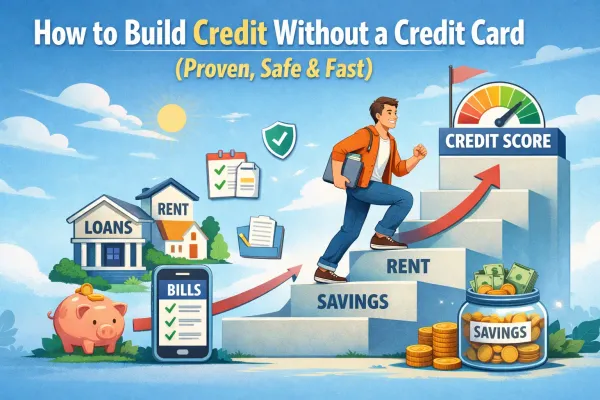Financial Planning for Veterans: Secure Your Future with Smart Strategies

Transitioning from military service to civilian life brings new financial challenges. Veterans must navigate income changes, housing expenses, and healthcare costs while maximizing military benefits. Proper financial planning ensures a stable and prosperous future.
Key Financial Challenges Veterans Face
- Loss of Military Benefits: Adjusting to civilian healthcare and insurance costs.
- New Income Structure: Managing salaries, VA benefits, and retirement pay.
- Debt and Credit Issues: Handling personal loans, student debt, and credit card payments.
- Investment Decisions: Choosing the right assets for long-term growth.
Understanding Military Benefits

Veterans have access to various financial benefits that can significantly impact their financial health. Understanding and leveraging these benefits is crucial for long-term stability.
VA Pensions and Disability Benefits
- Veterans with limited income may qualify for a VA pension based on service and financial need.
- Disability compensation is tax-free and provides financial support for service-related injuries or conditions.
Retirement Pay for Veterans
- Military pensions are based on service years and rank.
- Some veterans qualify for Concurrent Retirement and Disability Pay (CRDP) or Combat-Related Special Compensation (CRSC) for additional financial support.
Creating a Budget Post-Service
A well-structured budget helps veterans transition smoothly into civilian life.
Adjusting to Civilian Income
- Identify all sources of income, including VA benefits, pensions, and new employment.
- Account for tax changes on different income types.
Tracking Expenses and Reducing Debt
- Use budgeting apps like Mint, YNAB, or Personal Capital to monitor spending.
- Prioritize paying off high-interest debt like credit cards.
- Look into military debt consolidation programs for better repayment options.
Building an Emergency Fund
An emergency fund provides financial security in case of unexpected expenses.
Why Veterans Need an Emergency Fund
- Covers unforeseen medical costs, car repairs, or job loss.
- Prevents reliance on credit cards and high-interest loans.
Best Savings Accounts for Veterans
- Navy Federal Credit Union and USAA offer high-yield savings accounts.
- Certificates of Deposit (CDs) provide stable, long-term growth.
Debt Management Strategies
Many veterans face financial struggles due to accumulated debt. Proper debt management ensures financial freedom.
Handling Military Debt and Credit Score Improvement
- Review credit reports from Experian, Equifax, and TransUnion for errors.
- Improve your credit score by paying bills on time and reducing debt utilization.
Debt Consolidation Options for Veterans
- Consider VA debt relief programs for manageable repayment plans.
- Look into low-interest debt consolidation loans from veteran-friendly financial institutions.
Investment Opportunities for Veterans

Investing can help veterans grow their wealth and secure financial stability.
Types of Investments
- Stocks & Mutual Funds: High-return opportunities with long-term growth potential.
- Bonds: Low-risk investments offering fixed returns.
- Real Estate: VA loans make homeownership and rental property investments more accessible.
Retirement Investment Accounts
- Thrift Savings Plan (TSP): Government-sponsored retirement plan with tax benefits.
- Roth and Traditional IRAs: Offer tax advantages for long-term savings.
Retirement Planning for Veterans
Planning for retirement early ensures financial security in later years.
Maximizing Retirement Accounts
- Increase contributions to the Thrift Savings Plan (TSP) while in service.
- Diversify retirement savings between TSP, IRAs, and annuities.
Social Security Benefits for Veterans
- Delay claiming Social Security benefits to increase monthly payouts.
Tax Benefits for Veterans
Understanding tax exemptions and deductions can help veterans save money.
Tax-Free VA Benefits
- VA disability benefits are tax-free.
- Certain state benefits provide property tax exemptions for veterans.
Filing Tips for Veterans
- Use military tax preparation services for accurate filings.
- Claim deductions for business expenses, education, and medical costs.
Homeownership and VA Loans
VA loans make buying a home easier and more affordable.
Benefits of VA Loans
- No down payment required.
- Lower interest rates than conventional loans.
- No private mortgage insurance (PMI) required.
Insurance and Healthcare Planning
Healthcare costs can be significant post-service. Proper insurance planning is key.
Healthcare Options for Veterans
- TRICARE and VA Healthcare offer affordable medical coverage.
- Supplemental health plans help cover additional costs.
Life Insurance and Long-Term Care
- Veterans’ Group Life Insurance (VGLI) offers post-service coverage.
- Long-term care insurance helps with nursing home and assisted living costs.
Entrepreneurship for Veterans
Many veterans pursue business ownership after service.
Veteran Business Grants and Loans
- The Small Business Administration (SBA) offers funding for veteran-owned businesses.
- Nonprofit organizations provide grants and mentorship programs.
Estate Planning and Wills
Estate planning ensures that veterans’ assets are protected.
Essential Estate Planning Steps
- Draft a will and power of attorney.
- Set up a trust to manage assets for beneficiaries.
Financial Assistance Programs for Veterans
Veterans struggling financially can seek assistance from government and nonprofit organizations.
Available Support Programs
- VA Aid and Attendance provides additional pension support.
- Operation Homefront offers emergency financial assistance.
Avoiding Common Financial Mistakes
Veterans can avoid financial pitfalls with proper planning.
Financial Mistakes to Avoid
- Overspending VA benefits on non-essential purchases.
- Falling for financial scams targeting veterans.
- Ignoring credit card debt and high-interest loans.
Conclusion
Financial planning for veterans is essential for long-term stability. By leveraging military benefits, creating a solid budget, investing wisely, and avoiding common financial mistakes, veterans can secure a prosperous future. Proactive financial management ensures that veterans and their families enjoy financial independence and security.




